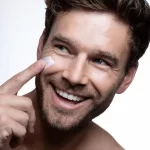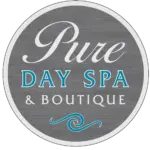
Retinol, a Vitamin A derivative, is one of the most widely researched and revered ingredients in skincare. There is a lot of science behind retinol, including its ability to promote skin cell turnover, enhance collagen production, and treat conditions like hyperpigmentation and acne, retinol has earned a spot in countless beauty routines. But what makes retinol so effective, and why is it a go-to for many dermatologists? Let’s dive into the science behind retinol and explore its various benefits and applications.
The Science Behind Retinol
Retinol belongs to a class of compounds known as retinoids, which are essentially derivatives of Vitamin A. When applied topically, retinol penetrates the skin and accelerates skin cell turnover. This means that older, damaged skin cells are replaced with fresher, healthier ones, improving the overall appearance and texture of the skin.
How Does Retinol Boost Collagen Production?
One of the primary reasons retinol is a staple in anti-aging skincare is its ability to stimulate collagen production. Collagen, a protein that provides structure and elasticity to the skin, naturally decreases as we age. By promoting collagen synthesis, retinol helps maintain skin firmness and reduces the appearance of fine lines and wrinkles, making it a powerful weapon against signs of aging.
Retinol and Acne Treatment
Retinol is also highly effective in treating acne. It works by preventing pores from becoming clogged with dead skin cells, which is a leading cause of breakouts. By encouraging skin cell turnover, retinol helps keep the skin clear of acne-causing blockages, offering long-term benefits for those struggling with acne.
Targeting Hyperpigmentation with Retinol
Another benefit of retinol is its ability to address hyperpigmentation, which includes dark spots, sun spots, and melasma. By promoting the exfoliation of the skin and increasing skin cell turnover, retinol helps to fade these imperfections, leaving the skin looking more even-toned and bright.
Retinol Sensitivity: What You Need to Know
Although retinol has numerous benefits, it is important to note that retinoid sensitivity can occur, especially for those with sensitive skin. Common side effects include redness, peeling, and dryness, especially during the initial stages of use. Dermatologists recommend starting with lower concentrations of retinol and gradually increasing usage to allow your skin to adjust.
Trusted Sources of Retinol Research
According to the American Academy of Dermatology (AAD), retinol is a cornerstone in both acne and anti-aging treatments. The AAD highlights multiple studies that demonstrate retinol’s effectiveness in increasing collagen production and improving skin texture over time. Additionally, a study published in the Journal of Dermatological Treatment found that retinoids, including retinol, are highly effective in treating hyperpigmentation caused by sun damage and melasma.
The National Institutes of Health (NIH) also support the use of topical retinoids for both acne and anti-aging purposes, citing extensive clinical trials that validate their efficacy in skin cell turnover and collagen synthesis.
How to Use Retinol Effectively
To maximize the benefits of retinol, it’s important to apply it correctly. Start with a lower concentration (0.25% to 0.5%), and use it every other night to build tolerance. Always apply retinol at night, as it can increase the skin’s sensitivity to sunlight. Use a broad-spectrum sunscreen in the morning to protect your skin from sun damage.
Conclusion: Retinol’s Powerful Science and Benefits
From anti-aging effects to treating acne and hyperpigmentation, the science behind retinol benefits is clear. This Vitamin A derivative continues to be a trusted ally in the fight against skin aging, acne, and other skin conditions. By enhancing skin cell turnover and promoting collagen production, retinol is a powerhouse ingredient that is scientifically proven to improve skin health. However, due to potential retinoid sensitivity, it’s essential to incorporate it gradually into your routine. Book a 15 minute skin consultation or a clinical facial to determine the best retinol regimen for your skin type.


